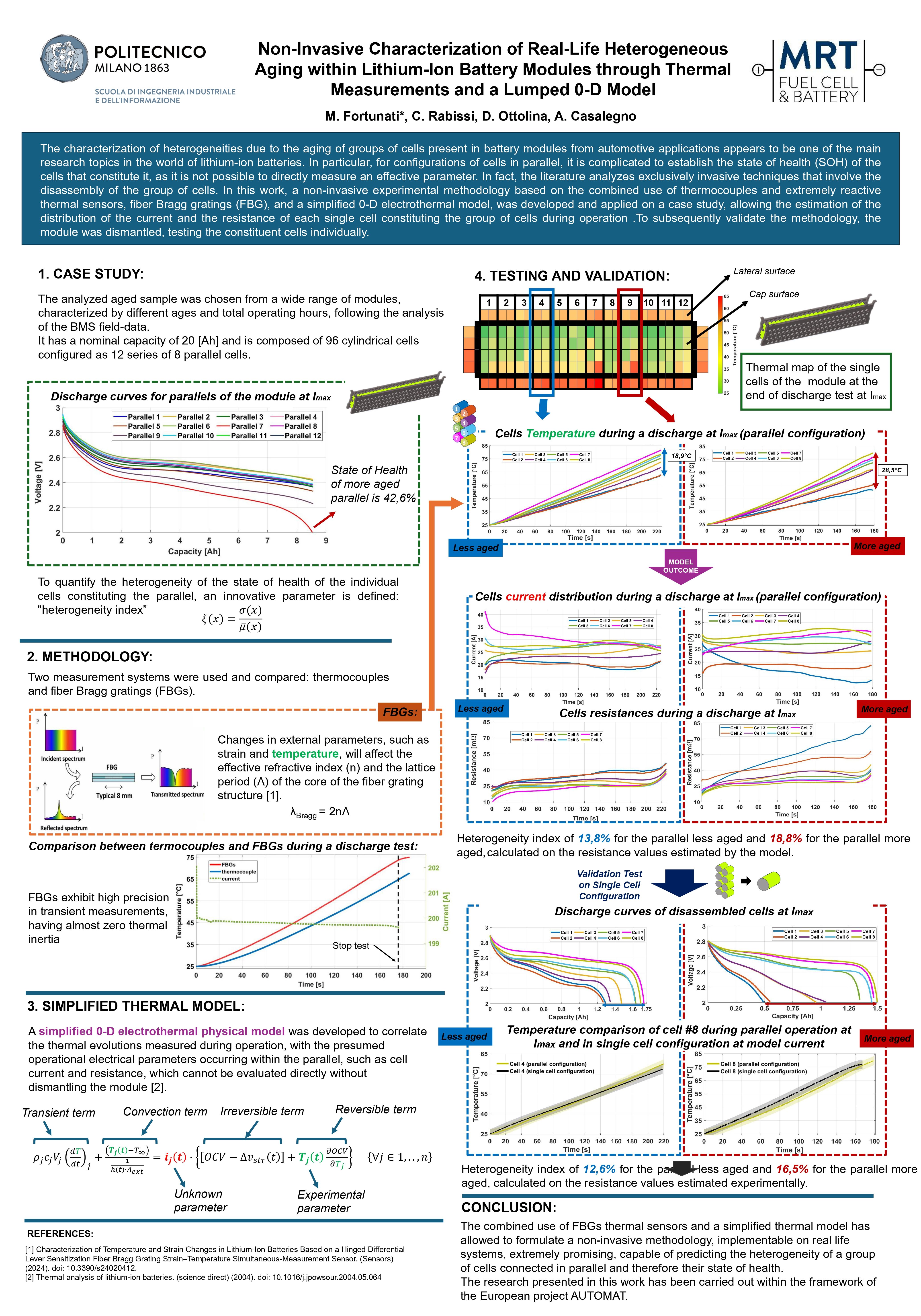
Martino Fortunati presents his research poster at the 37th ISE Topical Meeting in Stresa, Italy
From June 9th to 12th, 2024, Martino Fortunati, PhD candidate at the Politecnico di Milano – Department of Energy, took part in the 37th ISE Topical Meeting (International Society of Electrochemistry), held in Stresa, Italy, presenting his poster titled “Assessment and Understanding of Heterogeneities in an Aged Automotive Lithium-Ion Battery Module through Thermal Evaluation and a Lumped Parameter 0-D Model.”
The research focuses on the study of aged lithium-ion battery modules from automotive applications—an increasingly relevant topic in the field of energy storage, especially considering their potential reuse in second-life applications.
Understanding degradation phenomena, both at the module level and within individual cells, is crucial to ensure reliable and efficient reuse of these systems.
The study involved an innovative experimental campaign on an aged automotive lithium-ion battery module. The methodology is scientifically advanced, as it allows the module to be analyzed in its original configuration—without disassembly—by combining thermal measurements with a 0-D lumped parameter model. This approach makes it possible to investigate the inhomogeneities that develop over time and to quantify the heterogeneity of the module through a multi-level analysis.
By integrating thermal sensors, particularly Fiber Bragg Gratings (FBGs), and applying a dedicated thermal model, the team could estimate the internal current distribution within parallel cell groups based on temperature variation. The validity of this approach was confirmed through subsequent disassembly and testing of individual cells, which showed strong consistency with the model’s predictions.
This innovative methodology—combining experimental and modeling approaches—demonstrates how advanced thermal analysis can effectively identify and quantify degradation in aged battery modules.
The research presented in this work has been carried out within the framework of the European project AutoMat, which aims to support the sustainable recycling and second-life use of automotive batteries through technological innovation and strategic policy development.

